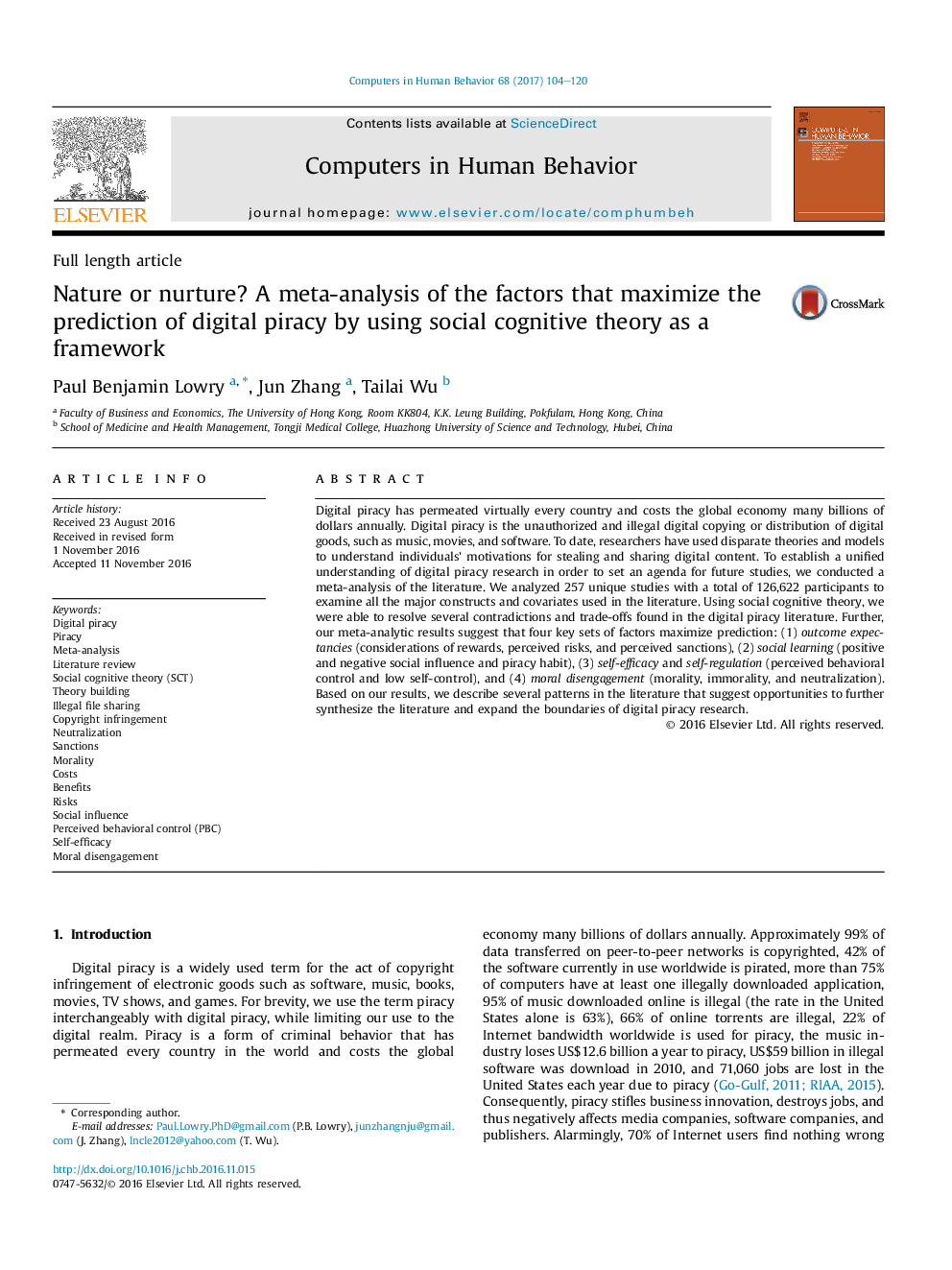| Article ID | Journal | Published Year | Pages | File Type |
|---|---|---|---|---|
| 4937668 | Computers in Human Behavior | 2017 | 17 Pages |
Abstract
Digital piracy has permeated virtually every country and costs the global economy many billions of dollars annually. Digital piracy is the unauthorized and illegal digital copying or distribution of digital goods, such as music, movies, and software. To date, researchers have used disparate theories and models to understand individuals' motivations for stealing and sharing digital content. To establish a unified understanding of digital piracy research in order to set an agenda for future studies, we conducted a meta-analysis of the literature. We analyzed 257 unique studies with a total of 126,622 participants to examine all the major constructs and covariates used in the literature. Using social cognitive theory, we were able to resolve several contradictions and trade-offs found in the digital piracy literature. Further, our meta-analytic results suggest that four key sets of factors maximize prediction: (1) outcome expectancies (considerations of rewards, perceived risks, and perceived sanctions), (2) social learning (positive and negative social influence and piracy habit), (3) self-efficacy and self-regulation (perceived behavioral control and low self-control), and (4) moral disengagement (morality, immorality, and neutralization). Based on our results, we describe several patterns in the literature that suggest opportunities to further synthesize the literature and expand the boundaries of digital piracy research.
Keywords
Related Topics
Physical Sciences and Engineering
Computer Science
Computer Science Applications
Authors
Paul Benjamin Lowry, Jun Zhang, Tailai Wu,
